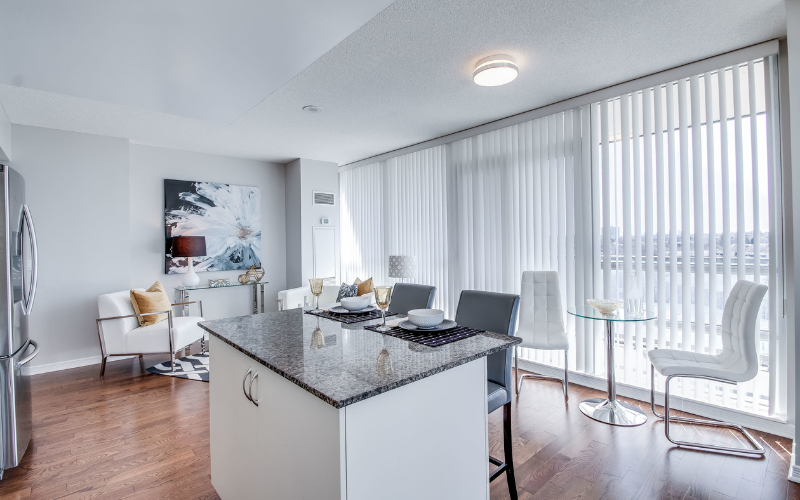There are a number of myths and misunderstandings when it comes to the MSHDA down payment assistance in Michigan.
In part, it’s likely due to the fact that every so often the MSHDA down payment assistance program changes. For example, in 20018, the Michigan State Housing Development Authority, or MSHDA, introduced their “Step-Forward” program.
This was a one-time, special program whereby the MSHDA down payment assistance was forgivable.
On top of that, few real estate experts — lenders and real estate agents — are knowledgeable about Michigan down payment assistance programs, MSHDA down payment assistance, and down payment assistance grants in Michigan.
Just adding to more confusion, misunderstandings, and myths.
All of these elements combined create some common myths. In this post, we’ll cover the five most common myths about MSHDA down payment assistance and Michigan down payment assistance programs.
We’re going to share the truth. This way, you are an informed, educated home buyer.
Myth #1: It’s Only Good For Certain Michigan Zip Codes
If you spend any time learning about MSHDA loans and the MSHDA down payment assistance program, you may have heard the myth that the Michigan down payment assistance program through MSHDA can only be used for specific zip codes.
That’s false.
In fact, a home buyer can use the MSHDA down payment assistance program ANYWHERE in Michigan.
Buying a home in Metro Detroit? No problem. You might qualify for a MSHDA down payment assistance.
Looking to buy a primary residence in the Upper Peninsula? No big deal. You might, too, qualify for down payment assistance in Michigan.
The zip code you wish to buy a home in isn’t by itself a MSHDA down payment assistance qualifying factor.
BUT, location does have a role in the MSHDA down payment assistance.
Depending on the zip code, the maximum down payment assistance you can qualify for is either $7,500 or $10,000. Plus, your zip code will change your maximum purchase price and the max income qualification requirement.
So, the zip code plays a role when it comes to the Michigan down payment assistance program, but it’s not a qualifying factor by itself. Rather, the zip code influences the specific qualifications.
You can buy a home anywhere in Michigan and qualify for down payment assistance through MSHDA.
So, the zip code or location is important to the extent that it influences qualification requirements. However, the MSHDA down payment assistance program can be used anywhere in the state of Michigan.
Myth #2: It’s Free Money
This is a myth that gets circulated around frequently and it leads to a lot of misunderstanding among home buyers.
There are a few reasons, I believe, that the MSHDA down payment assistance program has become synonymous with terms like home buyer grant program and free down payment assistance.
The first reason is likely due to the fact that at one point, MSHDA rolled out a special program whereby the MSHDA down payment assistance program became forgivable.
Here’s how it worked: the down payment assistance program amount would be forgiven by 20 percent every year, and so therefore, after five years, the entire down payment assistance amount becomes forgiven.
In this case, the MSHDA down payment assistance NEVER has to be paid back.
However, this was a VERY special program. One of a kind for a limited time.
As it stands at the time of publication, the MSHDA down payment assistance isn’t forgiven. It MUST be paid back.
So, why do they still call it free? It’s because the MSHDA down payment assistance, even though it’s a loan that needs to be paid back at the time of selling the home or refinancing, the down payment assistance doesn’t accrue interest and no payments are made to the balance.
Example: A home buyer gets a $10,000 down payment assistance. While the buyer lives in the home, the down payment assistance doesn’t accrue interest like a mortgage or credit card. On top of that, the home buyer isn’t required to make any payments to the balance, unlike a credit card or a mortgage.
So, in essence, it’s a free loan. That’s why people will often call it free money.
But, don’t make the mistake of believing that the amount doesn’t need to be paid back.
It does.
Myth #3: It’s Harder To Qualify Than Other Loans
Some home buyers find themselves being steered away from MSHDA loans and Michigan down payments assistance because they’re led to believe that it’s harder to qualify for than other loan options.
That’s maybe true.
It really depends on the home buyer. Some factors that play a role:
- What’s their credit score?
- How much cash and assets do they have?
- Where do they plan to buy a home?
- How much do they earn?
It’s really a case by case basis.
To just say, as a blanket, that it’s harder qualifying for a MSHDA loan and the down payment assistance program is just flat out false.
The only way to figure this out is to chat with a MSHDA lender based on your unique situation.
Don’t automatically assume that it’s harder to qualify for. Even if it is, it’s still worth looking into.
The down payment assistance program gives home buyers an opportunity to achieve home ownership for less than the cost of a rental.
Myth #4: I Can’t Own A Home In The Past
So, the MSHDA down payment assistance program is often thought of as a first-time home buyer program.
It’s true, to get the maximum down payment assistance, you do need to be a first-time home buyer, but the definition of “first time home buyer” that MSHDA uses is quite flexible.
A first time home buyer is someone who hasn’t owned a home in the last three years. That means you don’t need to be a TRUE first time home buyer.
It’s possible to qualify for the Michigan down payment assistance program if you owned a home in the past.
A perfect example is someone who purchased a home and during the Great Recession (‘08-’12) lost their home to foreclosure.
Assuming your finances are in better shape and you have a qualifying credit score, you’re eligible for the Michigan down payment assistance.
You’re considered a first-time home buyer.
Myth #5: It’s More Expensive
Browse around the web for mortgage interest rates and you might find that the MSHDA loan interest rate appears higher than other loan options.
Just like with loan qualifications, the loan costs are very specific to each person and their case.
Yes, it’s possible that a MSHDA loan with down payment assistance is more expensive than other traditional options, like conventional or FHA.
However, it’s also possible that a MSHDA loan with down payment assistance is cheaper than a conventional or FHA loan.
Example: One scenario that I see is when a home buyer has funds to put down a high percentage of down payment and then uses the MSHDA down payment assistance to put down more than 20 percent, thereby avoiding PMI, or mortgage insurance.
In this case, the home buyer often offsets the cost of the loan by reducing their monthly mortgage payment with less PMI.
So, it really depends.
Final Words MSHDA Down Payment Assistance
There you have it. The five common myths surrounding MSHDA down payment assistance. Armed with this information, you can make smart, informed home buying decisions. Maybe a MSHDA loan with down payment assistance is right for you.
Maybe it’s not. If you would like to have a conversation about whether a MSHDA loan is right for you, chat with a qualified lender.
Take advantage of our 15-minute no-obligation consultation with our partner lenders. You can schedule a quick chat with them today.




